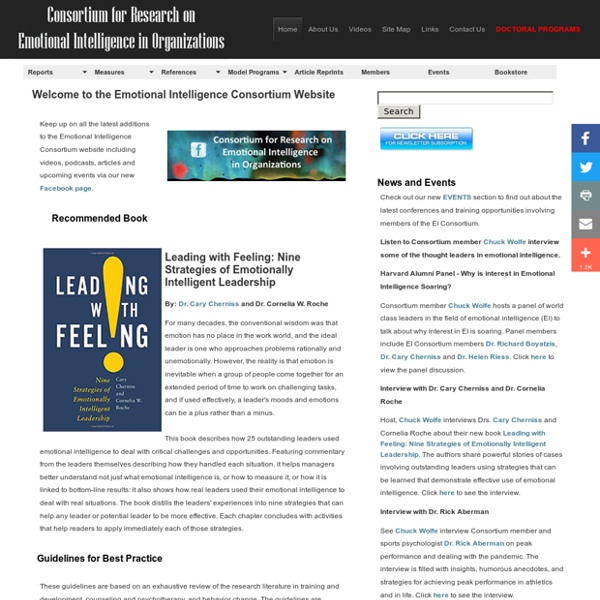



9 principes clés pour l'alphabétisation émotionnelle des enfants L’alphabétisation émotionnelle peut s’apprendre à tout âge mais c’est cependant pendant l’enfance qu’elle s’apprend le mieux. – Claude Steiner (psychologue et auteur de L’ABC des émotions) Les enfants vont avoir tendance à adopter des habitudes émotionnelles qui collent avec la représentation que les adultes vont former à leur sujet (et que les enfants vont finir par se faire d’eux-mêmes à force d’être étiquetés) : grognon, gentille, impatient, méchante… Ces schémas émotionnels sont en grande partie appris des parents et des autres membres de l’entourage (adultes mais aussi enfants qui sont eux-mêmes dans un cercle vicieux d’étiquetage des autres et de mimétisme des adultes en reprenant les paroles qu’ils entendent). Une fois adoptées, ces habitudes deviennent des schémas répétitifs ou scénarios décrivant la vie présente et la vie telle qu’elle sera. On voit les effets de tels schémas qui se reproduisent de générations en générations. Les filles sont traitées différemment. 4.Etre honnête
Hunting for Happiness Share Print In Depth › Science Features What is happiness, and why do we want it so badly? By Judy Skatssoon Happiness is like porn, according to Associate Professor Bill Von Hippel, of the school of psychology at the University of New South Wales. "Much like the famous comment on porn, people know it when they feel it, but it's hard to define," he says. While psychologists generally regard happiness as the experience of "good" emotions in the absence of "bad" ones, it's highly subjective. Happiness can be a feeling of contentment as much as an urge to dance a jig or do cartwheels. ^ to top Happiness in history There's nothing new about the pursuit of happiness. The ancient Greeks turned happiness into a lifestyle philosophy, with the Epicurean school advocating a simple life and simple pleasures as the key to happiness. Asian cultures sought happiness in meditation and the sense of balance symbolised in the Yin-Yang symbol. However we describe it, happiness is a serious business. Am I happy?
EMONET - Emotions Network Greater Good: The Science of a Meaningful Life Lise Bourbeau :: Accueil How to Be Happy Happiness part 2 - How to be happy »Happiness Part 1 - What is happiness? You've got the job, the partner, the kids, and the dog - but is it enough to make you happy? The good news, according to the director of Sydney's Happiness Institute Dr Timothy Sharp, is that being happy is a choice and unless there are clinical mental health problems, we can all be happier. "Happiness is something we can actively strive for and achieve if we do the right things," he says. Misery, on the other hand, is "simply errors of judgement or bad habits repeated every day". Swinburne University of Technology's Dr Bruce Findlay, a social psychologist, says happiness doesn't have to be complicated. "People are happy when they're getting on well with people that they love or that love them, people are happy when they're engaged in something that is challenging but not too hard," he says. The happiness recipe Rather, we should be talking about 'recipes' he says. What men and women want Meditation can make us happy
Health, Emotion and Behavior Laboratory Yale University This belief is the core of our work at YCEI. We conduct research and offer trainings that support people of all ages in developing emotional intelligence skills. We do this work because the well-being and sustainability of our society depends on each of us using our emotions wisely. As a self-supporting unit within the Yale School of Medicine’s Child Study Center, our research and training is funded primarily through foundation and federal grants, corporate support, training revenue, and philanthropists. Our goal is to design effective approaches for supporting school communities in understanding the value of emotions, teaching the skills of emotional intelligence, and building and sustaining positive emotional climates in homes, schools, and workplaces.
Psicología Social y de las Organizaciones Descubre Adicciones y psicofármacos Empresa Frases y reflexiones Niños y adolescentes PIR Psicología Relaciones de pareja y sexualidad Test y escalas Vida saludable Psicología Social y de las Organizaciones Artículos de gran calidad creados por expertos en Psicología Social y de las Organizaciones que te ayudarán a mejorar tu equilibrio emocional y relaciones. Además podrás compartir tu problema o duda acerca de Psicología Social y de las Organizaciones y te ayudaremos a encontrar la mejor solución para ti. Qué es la psicología organizacional Dentro de la psicología existen una gran variedad de ramas y especialidades. Introducción del liderazgo en las organizaciones La organización está compuesta de personas que tratan de conseguir unos fines comunes establecidos explícitamente y para ello aportan esfuerzos, habilidades, energía, y desempeñan distintos roles, en función de la estructura de la propia organización y de los procesos formales e informales que en ella se... El modelo de Locke
Videos Sunday Sermon at Washington National Cathedral How to “Brave The Wilderness” with Marie Forleo of MarieTV SXSW EDU 2017: Daring Classrooms RSA Short: Blame 99U: Why Your Critics Aren’t The Ones Who Count Rising Strong Manifesto of the Brave and Brokenhearted Video Bravery & Authenticity in a Digital World: An Interview with Chase Jarvis The Power of Being Vulnerable with Jonathan Fields of Good Life Project SuperSoul Sunday: Faking It, Perfectionism, and Living Wholeheartedly RSA Short: Empathy SuperSoul Sessions: The Anatomy of Trust TED Talk: Listening to Shame TED Talk: The Power of Vulnerability #Momsplaining w/ Kristen Bell
Learning Emotional Intelligence List of Emotions